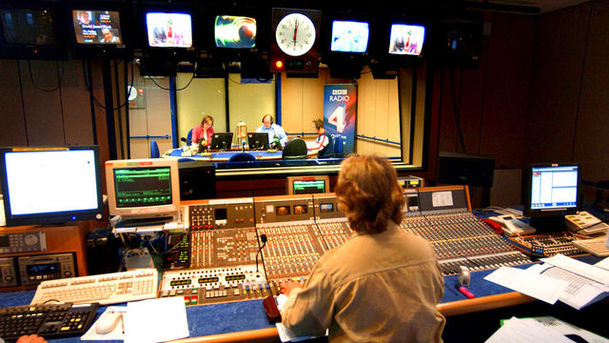Today - 12/10/2009

Presented by John Humphrys and Evan Davis. Hilary Clinton is in Northern Ireland talking to politicians in the final stages of the peace process. But back home in Washington it is Afghanistan that is occupying her boss, Barack Obama. Diplomatic correspondent James Robbins reports on the questions being put to the US Secretary of State. MPs are returning to the Commons after the summer break to face demands that they repay thousands of pounds in expenses or do more to justify them. Robin Chrystal reports on MPs' anger that claims that had been approved are now being re-examined. Shadow leader of the commons Sir George Young discusses whether MPs will disobey orders to justify claims. Greenpeace protestors campaigning about climate change are on the roof of the Palace of Westminster. Below them, parliament will receive a progress a report on how well Britain is doing in its efforts to reduce emissions. Chief executive of the Committee on Climate Change, David Kennedy, gives his verdict on the effectiveness of the UK's policy. The man who runs the National Association of Head Teachers has said that mobile phones could be allowed into the classroom. Chris Keates, general secretary of the teachers' union the NASUWT, discusses whether children should be trusted with their mobiles. The European Working Time Directive is now in force in the UK, preventing young doctors from working their traditionally long hours. But have the new rules made patients safer? A survey from the Royal College of Surgeons says hospitals are now less safe because of the rules. College president John Black and John Coakley, medical director of the Homerton hospital in London, debate doctors' working hours. It is 25 years since an IRA bomb destroyed the Grand Hotel in Brighton, killing five people and leaving many others horribly wounded. The blast left Norman Tebbit badly injured and his wife Margaret paralysed. Today he will unveil a plaque to mark the anniversary. The BBC's Robert Orchard was the first journalist on the scene. He recounts the events of that extraordinary night. Thought for the Day with religious commentator Clifford Longley. Gordon Brown is making a speech in the City explaining why he thinks his approach to Britain's deficit is the right one. He will argue that growth is the key to reducing government borrowing, and that cutting spending will be self-defeating as it threatens to reduce growth. Even more eye-catching in the speech is the commitment to reduce the stock of debt by selling state assets. First Secretary of State Lord Mandelson discusses whether Labour's policy on the economy is the right one. Eight years after allied forces invaded Afghanistan, the Taliban are once more in effective control much of the country and Nato forces - 9,000 of them British - are engaged in a bloody war with no obvious end in sight. John Humphrys asked the US Secretary of State, Hillary Clinton, about how the US hopes to end the war, restore stability to Afghanistan and, even more crucially, to neighbouring Pakistan. Artefacts recovered from the Mary Rose are being revealed today. Henry VIII's warship sank in 1545 and was famously lifted out of the Solent in 1982. The Mary Rose Trust wants 35 million pounds to fund a museum. Rear Admiral John Lippett, chief executive of the Trust, discusses the need for new investment and brings some of the ship's unseen Tudor artefacts into the studio. There is disagreement between Republicans and Unionists in Northern Ireland on how and when the assembly there should take control of policing and justice. The British government has promised 600 million pounds in financial support to fund the devolution of control. The former Irish prime minister Bertie Ahern, who played a central role in the Good Friday Agreement, gives his views on the seriousness of this latest argument. It is 21 years since Julie Ward, a British wildlife photographer, was murdered while she was working in Kenya. Now Scotland Yard detectives have come up with new evidence. Julie's father John outlines the latest news on the case. As Westminster opens for business again today, MPs might like to think about moral philosophy. The American political philosopher Michael Sandel, who delivered the 2009 Reith Lectures, argues that the language of morals should be used in politics more than it has been: it's not just 'what works', it's 'what's right'. 'The North' was once populated by pinch-faced men with cloth caps and whippets, whose diet consisted of dripping sandwiches - or so legend has it. The Guardian's Martin Wainwright, who has written a book on the subject, and comedian Arthur Smith, a Londoner who married a northerner, debate whether it really is 'grim up north'. As MPs return to Westminster after the summer recess, they are facing the threat of 'expenses scandal, part two', as Sir Thomas Legg's inquiry into gardening and cleaning bills is expected to lead to many MPs being asked to pay money back.